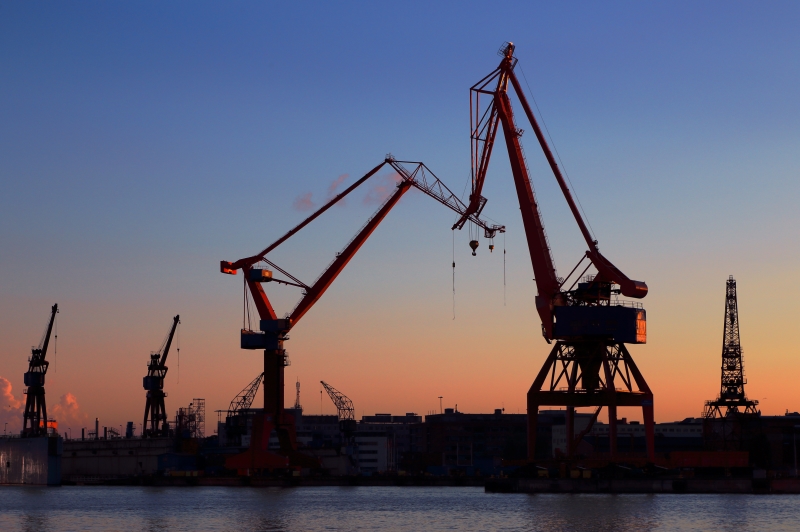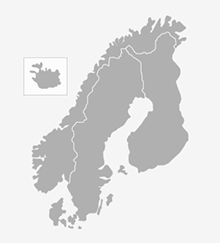Is it possible to reduce energy use, lower costs and raise quality when road transports, rail transports and maritime transports converge in ports? And also do all of this at the same time? This is what researchers and doctoral students in the project MODIG are hoping to find out.

MODIG is an acronym in Swedish for multimodal digitalised transport solutions and is a broad research project within technology, policy, and logistics, with a VTI doctoral student within each respective area. The project is funded by Trafikverket and will be completed by the end of 2025. Along with VTI the other participating partners are Linköpings University, the Royal Institute of Technology (KTH), the Swedish Maritime Administration, the Port of Luleå, the Port of Gävle and Stockholm Norvik Port.
The three doctoral students are Robert Klar (technology), Saana Ollila (policy) as well as Abdalla Mubder (logistics).
“In other words, we are roughly half-way now and in August the doctoral students will present their finding so far in a summary to the financers”, explains Niklas Arvidsson, senior researcher and supervisor for two of the doctoral students, and tries to capture the essence of what MODIG is really about.
“If I were to name a few key words that encompass aspects from all of the subprojects, they would be digitalisation, energy efficiency, coordination, and policy.”
Within the project, digitalisation is seen as a key factor in improving coordination between the different modes of transportation that converge in the ports. Currently haulage companies, ports, rail operators and shipping companies have all progressed to varying degrees in their digitalisation efforts, and current systems are often not compatible or synchronized with each other. Different security and policy aspects can further complicate coordination.
The researchers within MODIG are working towards the goal of improving coordination in order to reduce energy use within goods transport, and thereby reduce carbon dioxide emissions and climate impacts, while at the same time reducing costs and raising the quality of services. In other words, a win-win-win situation.
Another positive outcome can be that the transition to more energy efficient modes of transport, such as maritime transport, can move forward at a faster rate. Currently, this transition is slowed by the high costs associated with ports – according to some calculations this cost represents as much as 36-62 per cent of the total costs for trailer and container transport.
“I’m very pleased with the project so far. The doctoral students are doing an excellent job within their respective areas. Within the project we are not only producing a lot of interesting research results, but also three new researchers”, says Niklas Arvidsson.
In an article, which was merited with “best paper” at a conference in Helsinki in June, Abdalla Mubder examined the transition to a new system for booking berths at the Port of Gävle. The traditional praxis, “first come, first served”, entails in some cases inefficient coordination and also results in vessels traveling unnecessarily fast (and therefore having unnecessarily high fuel consumption). Instead, a new system has been introduced where berths can be booked digitally while the vessel is still at sea.
This is one of the first empirical studies and can help port authorities in managing transitions to new booking systems in the future.
“There are challenges, but the advantages outweigh them. And the more traffic a port has, the more potential there is to save fuel and reduce emissions. The sharing of information also makes it easier for other stakeholders to plan their activities, for example the unloading of cargo”, says Abdalla Mubder, who will defend his licentiate thesis, which contains this study, in the middle of September.
Within the area of technology, MODIG-TEK, new technological solutions such as so-called digital twins are studied. This is a form of advanced simulation where changes in ways of working and methods can be studied and evaluated digitally before they are put into practice. Another example is so-called predictive maintenance, where sensors are placed on cranes in a port and can notify when it is time for maintenance and service.
Within the policy area, MODIG-POL, the project examines for example, how infrastructure operators and other authorities can create a framework for companies to facilitate improvements in current logistic and transport solutions. An overall question is the effect of different policy instruments on reducing emissions within maritime transport and the goods transport sector.
Text: Mikael Sönne
Contact
- Niklas Arvidsson Senior Researcher niklas.arvidsson@vti.se
- Saana Ollila Research Assistant saana.ollila@vti.se
- Robert Klar Doctoral student robert.klar@vti.se
- Abdalla Mubder Doctoral student abdalla.mubder@vti.se






Follow us: